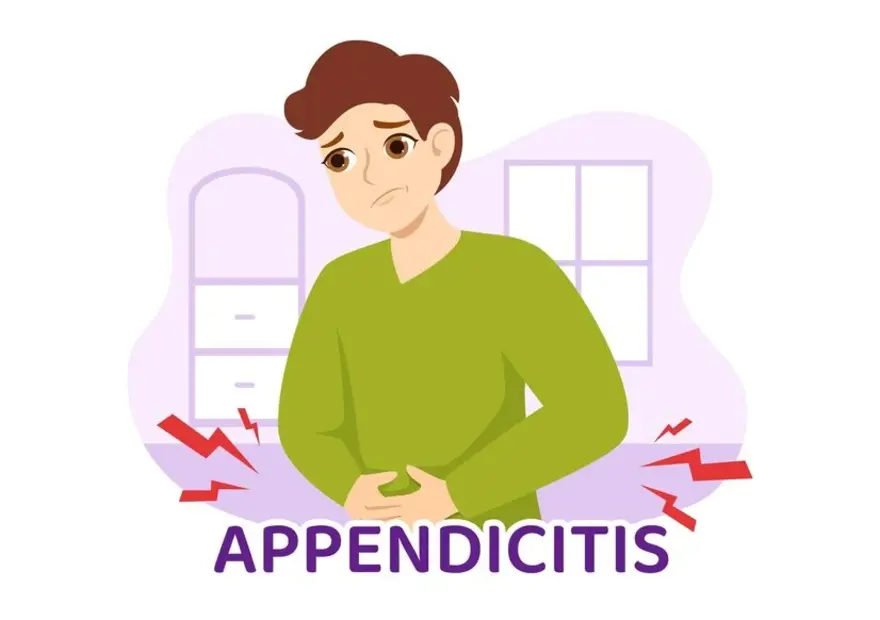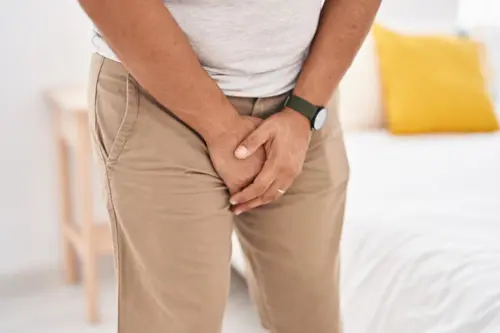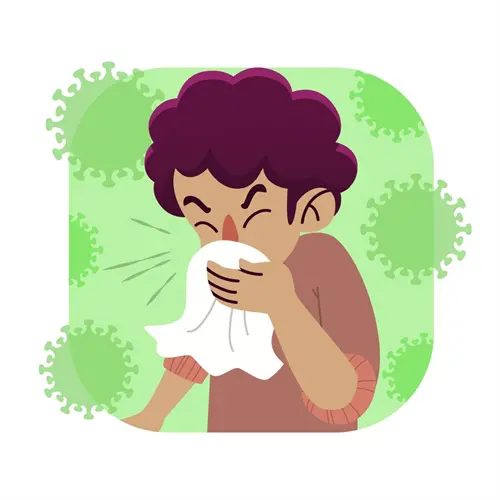Preventive Healthcare
Appendicitis: Early Signs, Diagnosis, and Treatment
206 Views
0

What is appendicitis?
Appendicitis is a medical condition characterised by the inflammation of the appendix, a small, finger-shaped pouch attached to the large intestine. This inflammation occurs when the appendix becomes infected or blocked, causing pain and discomfort. If left untreated, appendicitis can lead to serious complications, such as a ruptured appendix, which can spread the infection throughout the abdominal cavity. Recognising the early signs and symptoms of appendicitis is crucial for prompt medical intervention and successful treatment.
What is acute appendicitis vs. chronic appendicitis?
There are two main types of appendicitis: acute and chronic. Acute appendicitis is the most common form, characterised by the sudden onset of severe symptoms that rapidly worsen over a short period, usually within 24 to 48 hours. This type requires immediate medical attention to prevent complications. In contrast, chronic appendicitis involves recurrent or long-lasting symptoms that may be less severe but persist over time. Chronic appendicitis can be more challenging to diagnose and may require careful monitoring and management.
How common is appendicitis?
Appendicitis is a relatively common condition, affecting approximately 1 in 20 people at some point in their lives. It can occur in individuals of all ages but is most frequently diagnosed in those between the ages of 10 and 30.
What are the symptoms of appendicitis?
The primary symptoms of appendicitis include:
-
Sudden, sharp pain that begins near the belly button and shifts to the lower right abdomen
-
Pain that worsens with movement, coughing, or deep breathing
-
Nausea and vomiting
-
Loss of appetite
-
Low-grade fever
What are the early signs of appendicitis?
Early signs of appendicitis may be subtle and easily overlooked. These include:
-
Dull, cramping pain around the belly button that gradually intensifies and moves to the lower right abdomen
-
Loss of appetite or feeling of fullness
-
Mild nausea
-
Constipation or diarrhoea
If you experience these early signs, it's essential to monitor your symptoms closely and seek medical advice if they persist or worsen.
What are other possible symptoms of appendicitis?
In addition to the primary symptoms, some individuals may experience:
-
Abdominal swelling or bloating
-
Painful urination
-
Severe cramps
-
Constipation or diarrhoea with gas
In children, additional signs may include:
-
Irritability or lethargy
-
Refusing to eat
-
Pain when the right side of the abdomen is touched
It's important to note that symptoms of appendicitis can vary from person to person and may resemble other conditions, making diagnosis challenging in some cases.
How can I check for appendicitis at home?
While it's not possible to definitively diagnose appendicitis at home, there are some signs you can look out for:
- Locate the area of pain: Appendicitis typically causes pain in the lower right part of the abdomen.
- Check for tenderness: Gently press on this area. If the pain worsens with pressure, it could indicate inflammation.
- Assess pain severity: Appendix pain usually starts mild but becomes increasingly severe and constant.
- Monitor other symptoms: Take note of fever, nausea, vomiting, and changes in bowel habits.
If you suspect appendicitis, it's crucial to seek medical care promptly. Attempting to self-diagnose or delay treatment can lead to serious complications.
What other conditions might be confused with appendicitis?
Several other conditions can cause symptoms similar to appendicitis, including:
-
Ovarian cysts or pelvic inflammatory disease in women
-
Gastroenteritis (stomach flu)
-
Constipation
Accurate diagnosis often requires a thorough medical evaluation, including a physical exam, blood tests, and imaging studies.
What causes appendicitis?
The exact causes of appendicitis are not always clear, but the condition typically results from a blockage within the appendix. This obstruction can occur due to various factors:
- Faecal matter: Hard faecal matter can become trapped in the appendix, causing a blockage.
- Enlarged lymphoid follicles: Infection, such as a viral illness, can cause lymph nodes in the appendix to swell, leading to obstruction.
- Tumours or growths: In rare cases, tumours or other growths can block the appendiceal lumen.
- Intestinal worms or parasites: Parasitic infections can sometimes cause appendicitis.
When the appendix becomes blocked, bacteria can multiply rapidly, causing inflammation, swelling, and the formation of pus. As pressure builds within the appendix, it can rupture, spreading the infection to the abdominal cavity, a serious complication known as peritonitis.
What causes chronic appendicitis?
The exact causes of chronic appendicitis are not well understood. Some theories suggest that it may result from partial or intermittent blockages of the appendix, leading to recurrent inflammation. In some cases, chronic appendicitis may develop after an initial episode of acute appendicitis that was not adequately treated or resolved.
Is appendicitis genetic?
While there is no clear evidence that appendicitis is directly inherited, some studies suggest that genetic factors may play a role in an individual's susceptibility to the condition [4]. However, more research is needed to fully understand the potential genetic influences on appendicitis.
Can stress cause appendicitis?
Stress itself does not directly cause appendicitis. However, stress can weaken the immune system, making individuals more susceptible to infections that may contribute to the development of appendicitis.
Can food cause appendicitis?
No specific food has been proven to cause appendicitis. However, a diet low in fibre and high in processed foods may increase the risk of faecal matter becoming trapped in the appendix, potentially leading to obstruction and inflammation.
What are the possible complications of appendicitis?
If appendicitis is not promptly treated, it can lead to serious complications:
- Ruptured appendix (perforation): As the inflammation progresses, the appendix can rupture, spilling infectious material into the abdominal cavity. This can lead to peritonitis, a potentially life-threatening condition that requires immediate medical intervention.
- Abscess formation: In some cases, the body may attempt to contain the infection by forming an abscess around the appendix. This can complicate treatment and may require drainage in addition to appendicitis surgery.
- Sepsis: If the infection spreads to the bloodstream, it can cause sepsis, a severe and potentially fatal systemic inflammatory response.
Prompt diagnosis and treatment of appendicitis are essential to minimise the risk of these complications. If you suspect appendicitis, seek medical care immediately.
How is appendicitis diagnosed?
Diagnosing appendicitis involves a combination of physical examination, patient history, and diagnostic tests:
- Physical exam: A doctor will check for tenderness in the lower right abdomen, abdominal rigidity, and pain when pressure is applied and released (rebound tenderness).
- Blood tests: A high white blood cell count may indicate an infection.
- Imaging tests: An abdominal ultrasound or CT scan can help visualise the appendix and surrounding tissues.
What tests can diagnose appendicitis?
The most common tests used to diagnose appendicitis include:
-
Abdominal ultrasound: This imaging test uses sound waves to create pictures of the appendix and can help identify inflammation or rupture.
-
CT scan: A CT scan provides detailed cross-sectional images of the abdomen and can accurately diagnose appendicitis.
-
Blood tests: A complete blood count (CBC) can reveal an elevated white blood cell count, indicating infection.
Can appendicitis go away on its own?
In some rare cases, mild appendicitis may resolve without treatment. However, it is impossible to predict which cases will self-resolve and which will progress to more severe complications. Therefore, seeking prompt medical attention is always recommended if you suspect appendicitis. Delaying treatment can lead to a ruptured appendix and potentially life-threatening complications.
What is the treatment for appendicitis?
The standard treatment for appendicitis is surgical removal of the appendix, known as an appendectomy. The type of surgery depends on the severity of the inflammation and whether the appendix has ruptured.
Medication
Before surgery, patients may receive antibiotics to help control the infection and reduce the risk of complications. Pain medication may also be administered to manage discomfort. However, antibiotics alone are not a substitute for surgery in most cases of appendicitis.
Surgery
There are two main surgical approaches for appendicitis:
- Laparoscopic appendectomy: This minimally invasive technique involves making small incisions in the abdomen and using a camera-guided instrument to remove the appendix. Laparoscopic surgery generally results in less postoperative pain, shorter hospital stays, and faster recovery times.
- Open appendectomy: In some cases, particularly if the appendix has ruptured or complications are present, an open surgery with a larger incision may be necessary. Open surgery allows the surgeon to clean the abdominal cavity more effectively if infection has spread.
What is the outlook for appendicitis?
With prompt diagnosis and appropriate treatment, the outlook for appendicitis is generally excellent. Most people recover fully within a few weeks of surgery. However, if the appendix ruptures before surgery, the recovery process may be longer, and there is a higher risk of complications.
When to see a doctor for appendicitis?
If you experience symptoms of appendicitis, particularly severe abdominal pain, it is essential to seek medical care immediately. Prompt treatment can prevent complications and improve outcomes. Don't hesitate to contact your healthcare provider or visit an emergency room if you suspect appendicitis.
Conclusion
Appendicitis is a serious medical condition that requires prompt attention and treatment. By understanding the early signs and symptoms, causes, diagnostic process, and treatment options for appendicitis, you can be better prepared to seek timely medical care for yourself or a loved one. If you suspect appendicitis, don't delay in contacting your healthcare provider. Early intervention is key to a successful recovery.
At Metropolis Healthcare, we understand the importance of accurate diagnosis in managing conditions like appendicitis. Our state-of-the-art diagnostic labs and experienced team of pathologists are committed to providing reliable, timely results to support informed medical decisions. If your doctor recommends blood tests or other diagnostic assessments for suspected appendicitis, trust Metropolis Healthcare for compassionate, patient-centric care every step of the way.























 WhatsApp
WhatsApp